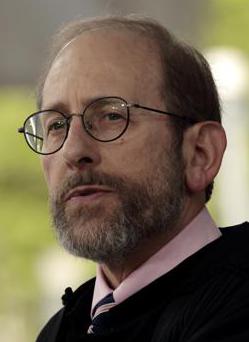UTOPIAN HOTLINE
By Theater Mitu. Presented by ArtsEmerson and the Museum of Science. Through May 18 at Museum of Science, 1 Science Park. Tickets $25 general, $17.50 museum members. www.mos.org/events/utopian-hotline
In 1977, NASA stowed a pair of gold-plated phonograph records on the two Voyager spacecraft missions to the outer reaches of our solar system. Organized by a committee led by the astronomer Carl Sagan, the records were a “message in a bottle’’ created to contact intelligent life on other planets, featuring greetings in dozens of languages, natural field recordings from Earth, and music by Bach, Beethoven, and Chuck Berry.
The prospect of encountering an alien life form that could figure out how to drop a needle onto an album on a turntable in outer space was remote, Sagan acknowledged at the time. Yet the project, he said, represented “something very hopeful about life on this planet.’’
That’s the premise behind “Utopian Hotline,’’ an unusual, immersive performance piece presented at the Museum of Science through May 18 by the Brooklyn-based Theater Mitu. Part of the museum’s yearlong “Being Human’’ initiative, the show takes place in the Charles Hayden Planetarium.
Though there are a couple of turntables on the work station at the center of the planetarium’s circular theater, the show does not focus on the contents of the “Golden Record.’’ Instead, the four performers, dressed in matching olive-drab jumpsuits, take turns addressing the audience in hushed tones, through headphones.
The performance is structured as a thought experiment: What is time, and what is space? What does it mean to be lonely? And how could we make the world a better place?
Audience members, who are encouraged to put on their headphones in the lobby before the show begins, are introduced to a series of unidentified voices. They’re ordinary people who have left messages through the “Utopian Hotline’’ (646-694-8050). The question: How do you imagine a more perfect future?
On the show’s opening night at the museum, responses ranged from thoughts on reforming consumer culture and ending our addiction to guns to a longing for the day “when phones are abolished and waffles are mandatory.’’
Once the audience is seated and the lights go down, the performers begin to move around the work station, which is equipped with playback devices and push-button telephones. When an actor picks up a handset and begins to speak, their voice is transmitted to the audience headphones. The effect is dreamy, like an inner voice speaking to your subconscious.
Overhead, projected on the dome of the planetarium, we see kinetic images of space travel and an astronaut’s view of our “little blue dot.’’ Circles abound, from spinning records to rotary dials. During an actor’s quiet monologue about sitting on her grandmother’s porch, listening to old-time music, the audience is immersed in a bubble-like field of tall grass at sunset.
At one point, an actor tees up the computer voice of the late physicist Stephen Hawking, who explains his theory of black holes. The projected images that accompany this are simple geometry — pairs of circles that represent the dance of charged particles, or human attraction.
The anecdotes the actors relate seem to come from their own actual lives. One recalls leaving rocks in secret places for childhood friends “in hopes of making meaning.’’ Another performer explains how her mother cherished nothing more than family dinner time, during which her children were forbidden to answer the phone.
“Don’t pick it up,’’ her mother would warn. “It could be the future!’’
If time is linear, the performers suggest, then why are clocks round? It’s a never-ending circle, one says. Everything is connected.
Experimental electronic music — the kind the mind typically associates with the early days of computer development and space exploration — drifts behind the voices. In stretches, the actors speak their parts as if singing in the round. The women sometimes sing a cappella: haunting versions of “Are You Lonesome Tonight?’’ and Hank Williams’s “I’m So Lonesome I Could Cry.’’
But even if we are truly alone in the universe, “Utopian Hotline’’ will leave those who experience it with a welcome sense of tranquillity and wonder. We’re reminded that humans, like all things, are made of stardust: “It takes a cosmos to make a human,’’ one of the performers says.
Is anybody out there? The curious-minded may want to attend this otherworldly show to give it some thought.
James Sullivan can be reached at
jamesgsullivan@gmail.com
.



